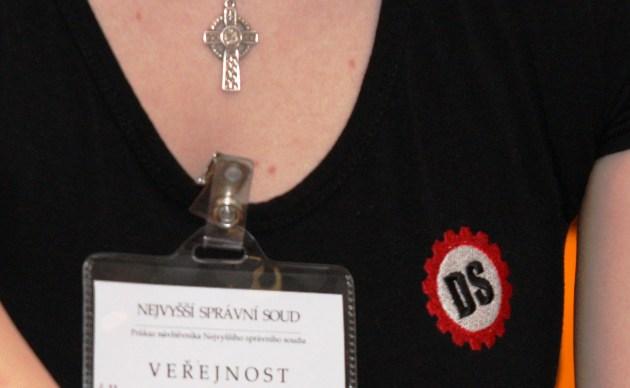Czech judge who dissolved neo-Nazi party joins Constitutional Court

On 30 May the Czech Senate approved Czech President Miloš Zeman’s proposal to promote Judge Vojtěch Šimíček to the Constitutional Court. Šimíček chaired a panel at the Supreme Administrative Court that decides on electoral and political party cases.
Šimíček ruled on the dissolution of the neo-Nazi Workers’ Party (Dělnická strana – DS). He called his nomination a display of generosity on Zeman’s part.
The judge was responding to the fact that the President told the senators he appreciated Šimíček’s courage in criticizing several aspects of his election campaign after his election. "I can’t claim to completely agree with those criticisms, Mr Šimíček. There is a big difference between an intentional untruth and an unintentional one," Zeman said.
The President said he believes Šimíček will rule on other cases with the same vigor. He also said the judge "won my heart when he said that not every stupid law is necessarily unconstitutional."
The Supreme Administrative Court (Nejvyšší správní soud – NSS) justified its dissolution of the DS by saying that "The National Socialism of the Workers’ Party is a continuation of Hitlerite National Socialism, specifically, neo-Nazism". In his explanation of the verdict, Šimíček mentioned several of the points of the DS program that contravened the law.
The judge said he believed the DS could be labeled a "chauvinistic, homophobic, and populist with racist tendencies." As part of that hearing, the NSS evaluated the content of the DS election advertisements that public broadcaster Czech Radio refused to air.
Those advertisements concerned "Gypsies", as the DS refers to Romani people. The court found the advertisements to be racists, as they expressed blanket generalizations about ethnic Roma.
The panel of judges said generalizations about a particular group on the basis of ethnicity are legally impermissible. The DS had opposed itself in a generalizing way to the Jewish, Romani and Vietnamese minorities, as well as to "homosexuals", immigrants, etc.
The party’s propaganda created the impression that the Czech majority society was somehow threatened by the existence of these minorities. The court found that the DS ideology also attacked the essence of the state’s democratic system.
Another essential message of the court was that freedom of speech has boundaries that cannot be exceeded. In the speeches given at assemblies organized by the DS, or at which it participated, as well as in the opinions to which the party gave room in its newspaper, people called for ethnic, national, racial and social intolerance and attempted to suppress the fundamental rights and freedoms of various groups.
In its indictment of the DS, the Government argued through the testimony of experts who said the symbols and verbal speeches of the DS were a continuation of Hitlerite National Socialism. Tomáš Sokol, the Government’s attorney, submitted dozens of pages of evidence of that to the court.
The specially-convened seven-member panel also watched video recordings from the street battles at the Janov housing estate in the Czech town of Litvínov in 2008 and interrogated police officers who investigate extremism. DS members who were summoned to testify refused to do so, with the exception of party chair Tomáš Vandas.
The decision to dissolve the Workers’ Party was subsequently upheld by both the Czech Constitutional Court and the European Court of Human Rights. Vandas went on to form the Workers’ Social Justice Party (DSSS).